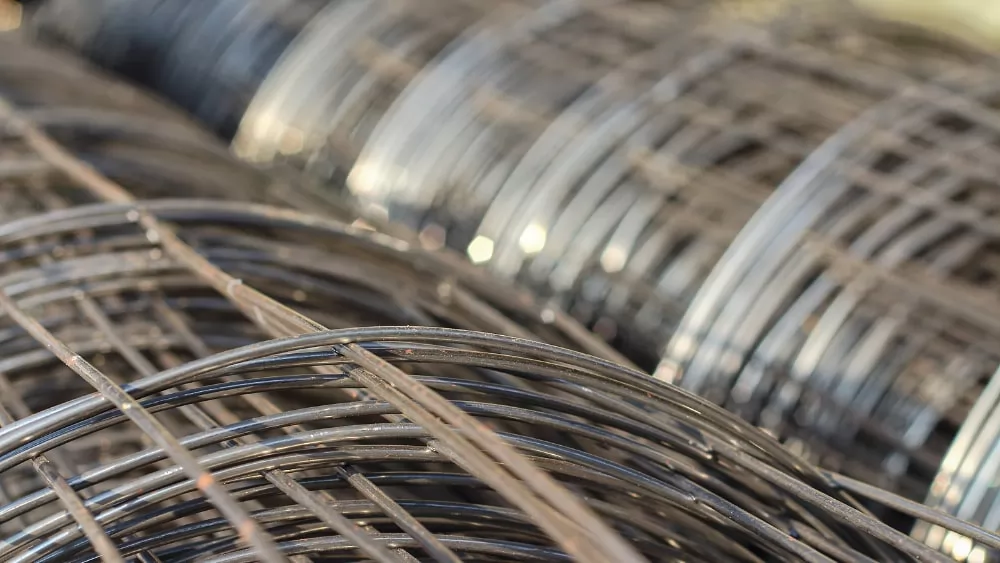





Are you struggling to procure wire mesh? Faced with vastly different prices, complex specifications, and elusive quality in the market, making the right decision can seem incredibly difficult. Whether used for building reinforcement, industrial screening, or agricultural fencing, wire mesh is one of the key materials for project success. China, as the world's leading wire mesh manufacturing center, has become the preferred destination for global buyers due to its highly competitive prices, massive production scale, and increasingly stringent quality standards.
However, the question "How much does it cost to procure from China?" doesn't have a simple answer. This article will serve as your ultimate guide, providing an in-depth analysis of the cost structure of wire mesh purchased from Chinese manufacturers.
To give you a quick overview, the table below provides reference FOB (Free On Board) prices for several of the most common types of metal mesh sourced from Chinese suppliers. Please note that these prices (in USD per square meter) are estimates based on the Chinese market and actual quotations will vary depending on specification details, order quantity, and negotiation.
| Metal Mesh Type | Common Specification Example | Estimated Sourcing Price Range from China (USD/m²) | Primary Application Scenarios |
|---|---|---|---|
| Welded Wire Mesh | Wire Diameter 2mm, Aperture 50x50mm, Electro-Galvanized | $0.8 - $1.5 | Reinforcement in building insulation layers, simple fencing, storage cages |
| Wire Diameter 4mm, Aperture 100x200mm, Hot-Dip Galvanized | $2.5 - $4.5 | Industrial platforms, large-scale breeding farms, warehouse partitions | |
| Crimped Wire Mesh | Low Carbon Steel, Wire Diameter 1.5mm, Aperture 10x10mm | $3.0 - $6.0 | Fine screening, grain sorting, decoration |
| Stainless Steel 304, Wire Diameter 1mm, Aperture 5x5mm | $8.0 - $15.0 | High-precision filtration, food processing, laboratories | |
| Stainless Steel Plain Weave Mesh | Grade 201, Wire Diameter 0.5mm, Aperture 2x2mm | $5.0 - $10.0 | Window and door guards, food racks, general filtration |
| Grade 304, Wire Diameter 1mm, Aperture 10x10mm | $10.0 - $20.0 | Chemical industry, pharmaceuticals, marine environments | |
| Diamond Mesh / Chain Link Mesh | PVC Coated, Wire Diameter 2.3mm, Aperture 50x50mm | $2.0 - $4.0 | Stadium fencing, garden protection, safety barriers |
Key Note: The prices in this table are reference prices for the raw material ex-factory price when sourcing from Chinese suppliers, typically quoted as FOB. They do not include international sea freight, insurance, import duties, or destination port clearance fees. Unit prices generally decrease with larger order quantities.
This section is the third part of the article: a technical deep dive. It thoroughly explains the seven key factors that affect the price of metal wire mesh, helping procurement professionals understand pricing differences from the perspectives of material costs, manufacturing processes, logistics, and certification.
Raw materials represent a major portion of the final product cost and are typically the most critical factor in determining price. Key considerations include:
Surface treatment influences both product lifespan and pricing. Common options include:
Even with the same material and wire diameter, processing complexity affects the final price:
Purchase volume directly affects unit price, typically seen in MOQ and tiered pricing:
Different supplier types impact pricing and service scope:
Logistics cost and trade terms directly affect landed cost:
Certification requirements influence pricing and market positioning:
Procurement typically estimates final price using:
Buying wire mesh from China can be cost-effective, but smart planning can help you save even more without compromising on quality or performance. Here are some practical ways to lower your total procurement cost:
Buying metal wire mesh from China can offer excellent value, but only if you know what to look for. Before placing an order, make sure to check the following key points:
1. Confirm Material Grade Clearly
Don’t just accept “stainless steel” as an answer. Ask for the exact grade (e.g., 201, 304, 316). The price and corrosion resistance vary greatly between them.
2. Check Wire Diameter and Mesh Count Accuracy
Even slight differences in wire thickness or mesh count can change strength and cost. Request specification sheets and confirm actual measurements.
3. Inspect Surface Treatment
Understanding whether the mesh is hot-dip galvanized, electro-galvanized, PVC coated, or untreated will help you avoid rust issues later.
4. Request Real Sample Before Bulk Order
A physical sample helps you judge flexibility, strength, finish quality, and avoid unpleasant surprises.
5. Understand Packaging Method
Proper packaging (rolls wrapped, pallets, moisture protection) prevents damage during long-distance shipping.
6. Verify Supplier Identity
Determine whether you’re dealing with a manufacturer or trading company. Manufacturers usually offer more stable pricing and consistent quality.
In today’s global market, achieving the right balance between cost control and consistent product quality is not always easy. While lowering expenses matters, cutting corners on quality can lead to high return rates, customer dissatisfaction, and long-term damage to your brand reputation. This is why it’s essential to choose a supplier who values both affordability and reliability.
If stable supply, long-term cooperation, and dependable product performance are important to you, then partnering with Yangze will be a worthwhile decision. The potential losses caused by unreliable manufacturing can easily exceed whatever small cost savings you might gain elsewhere.
If you’d like to learn more or discuss your project needs, contact Yangze today. Our wire mesh specialists are ready to support you with fast, professional service.
Related content recommendations:
Welding Mesh Price Guide (2025): Market Rates & Savings Tips
Everything you need to know about pig cage mesh: from galvanized and stainless steel to high-strength 6-gauge wire. Get expert buying tips and advice!
TWhen it comes to wire mesh manufacturers USA, the options are nearly endless. US manufacturers excel at producing a diverse range of wire me
When it comes to selecting stainless steel welded mesh for your project, understanding the difference between 304 and 316 grades is essential.
